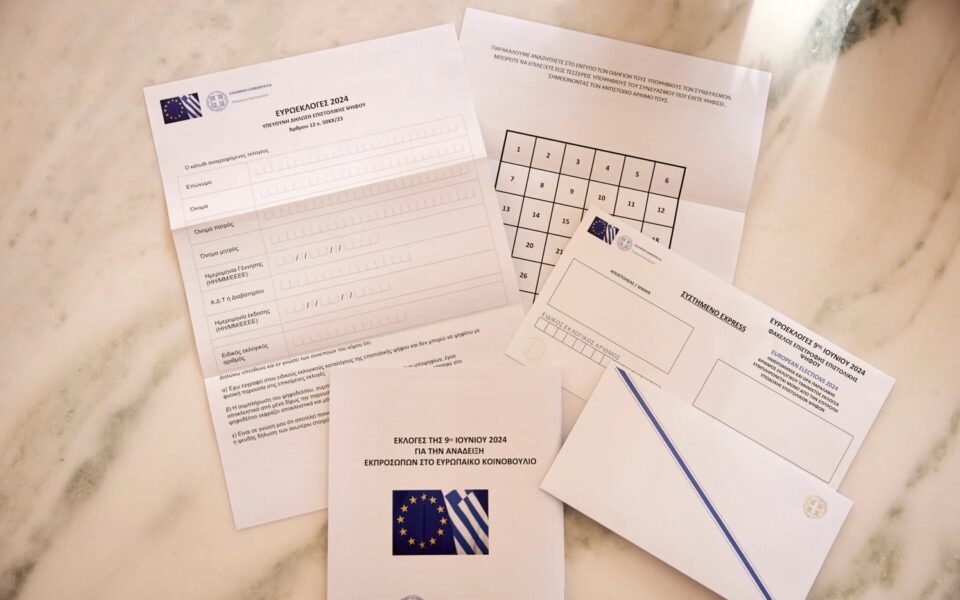Greece enters the postal vote era

The first part of postal voting for the June European elections was completed on Monday with the relevant platform receiving applications closing one minute before Monday midnight (Greek time).
By late Monday, 190,382 citizens from 127 countries had registered on the platform for postal voting – which is being implemented for the first time in an election in Greece.
The largest proportion – about 75% – of registrations came from within Greece and 25% from abroad, of which 84.5% reside in Europe.
The highest number of registrations by country came from residents of Germany (8,756), the United Kingdom (8,315), the United States (3,613), Belgium (3,233) and the Netherlands (2,849).
Expatriates living in countries where no polling stations were set up in last year’s parliamentary elections, as the required number was not filled, will also be able to vote in the June elections.
These countries include Angola, Botswana, Zambia, Papua New Guinea, Djibouti, Barbados, Ghana, El Salvador, Ivory Coast and Zambia.
The percentage of people registered on the platform is similar across all age groups, as is that of men and women.
The most odious part of the process starts on Wednesday as thousands of voting envelopes must be dispatched to voters in Greece and mainly abroad.
The envelopes will travel from Greece to various countries around the world, and returned by election day.
The envelopes will be sent by the Ministry of Interior through partner courier companies in May.
They will include a postal ballot return envelope, a ballot paper with all the parties, a voting envelope which will be anonymous, an instruction form, a list of candidates and an application form which must be completed.
Meanwhile, questions were raised by the attempted break-in at the office of the chief electoral officer at Evangelistria Street in Athens last Friday. Police sources said the incident resembled burglaries that often occur in public buildings downtown, usually midday.




